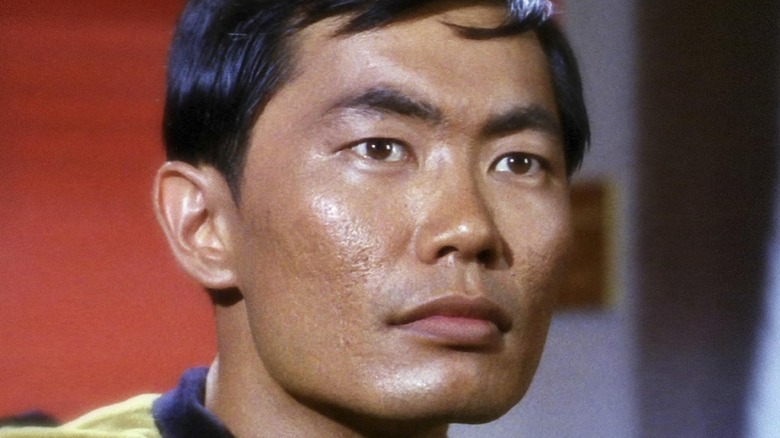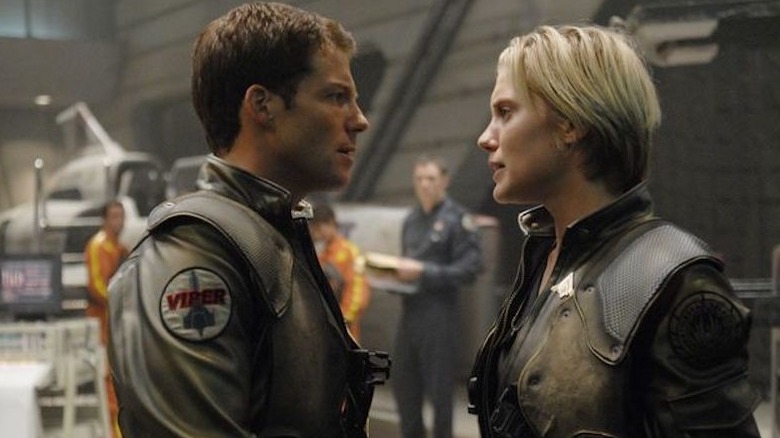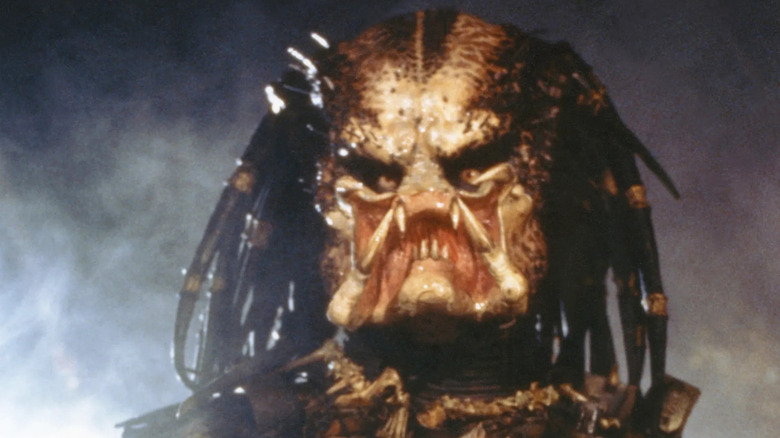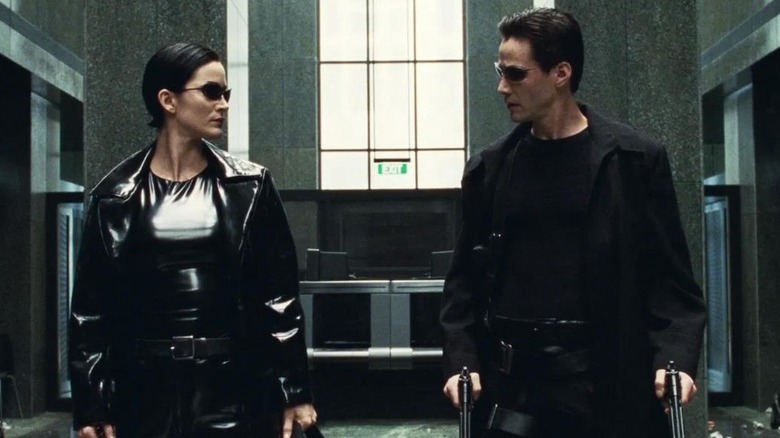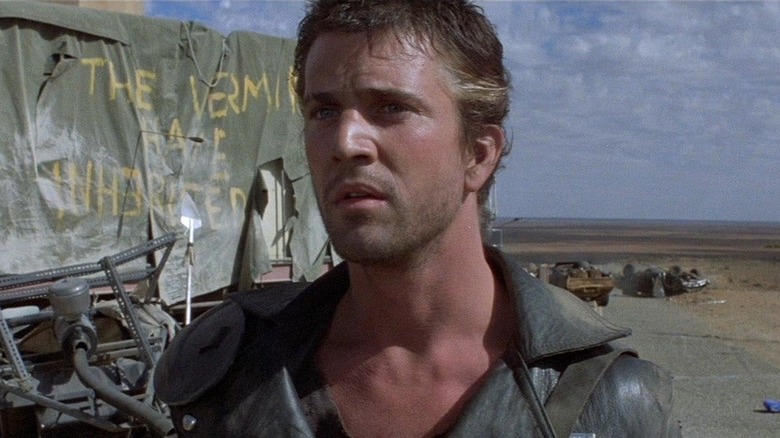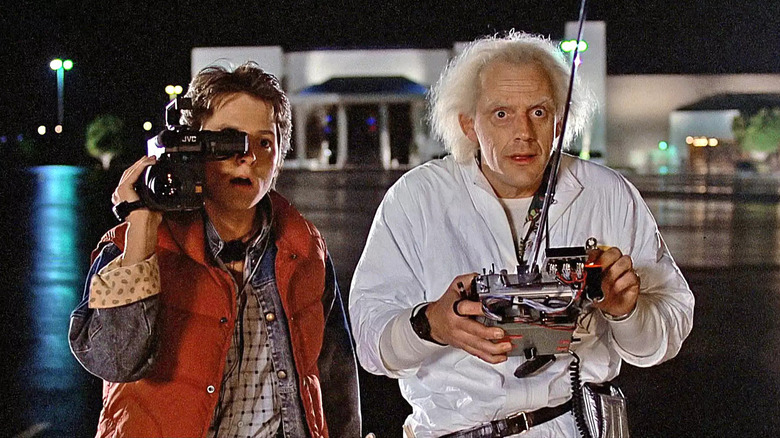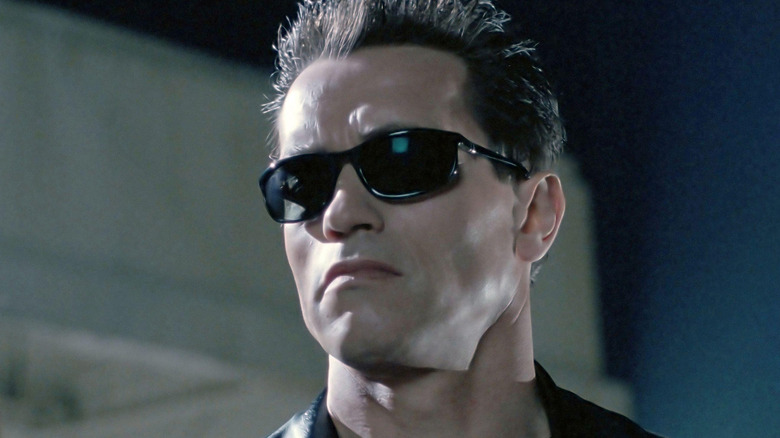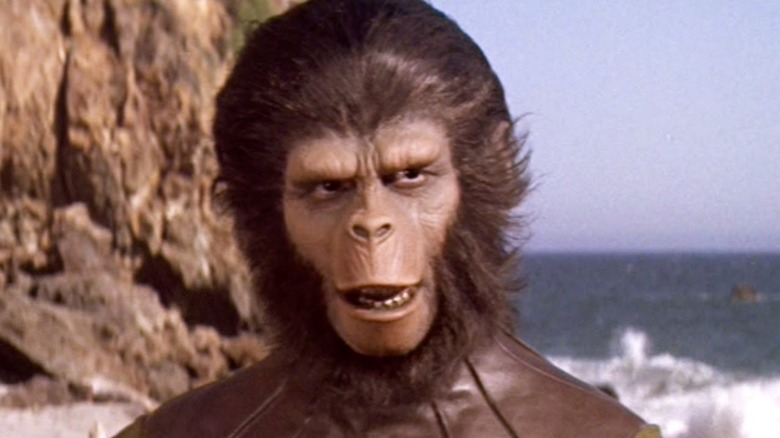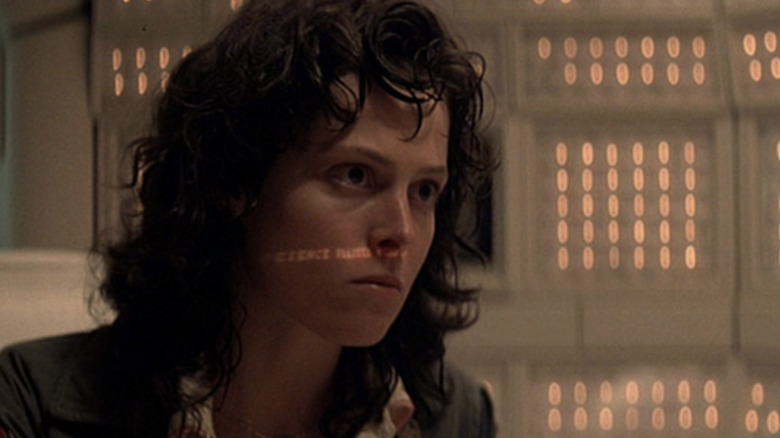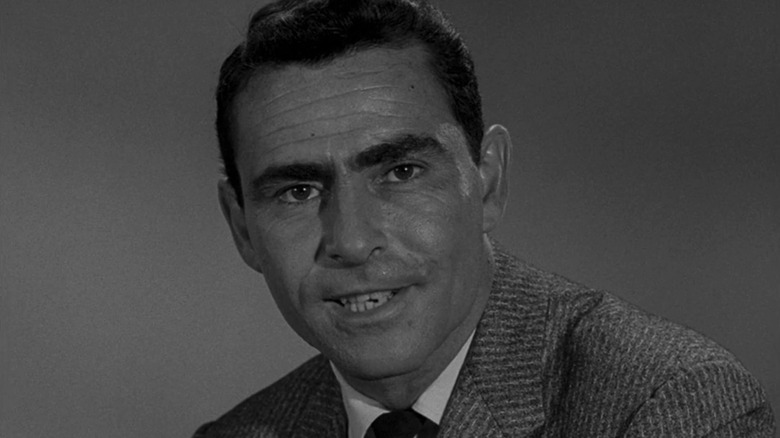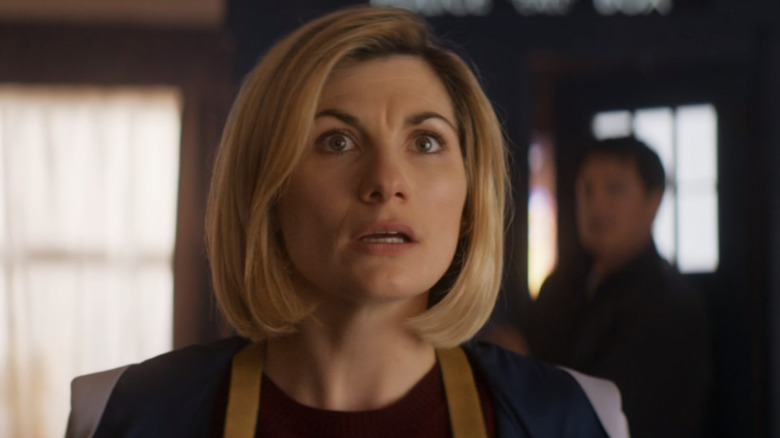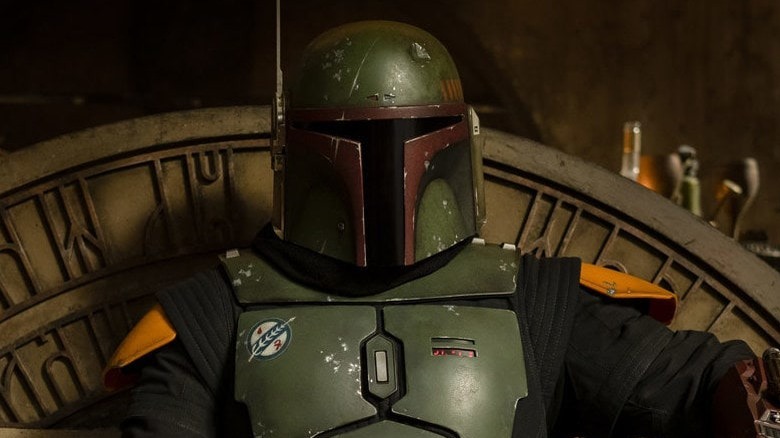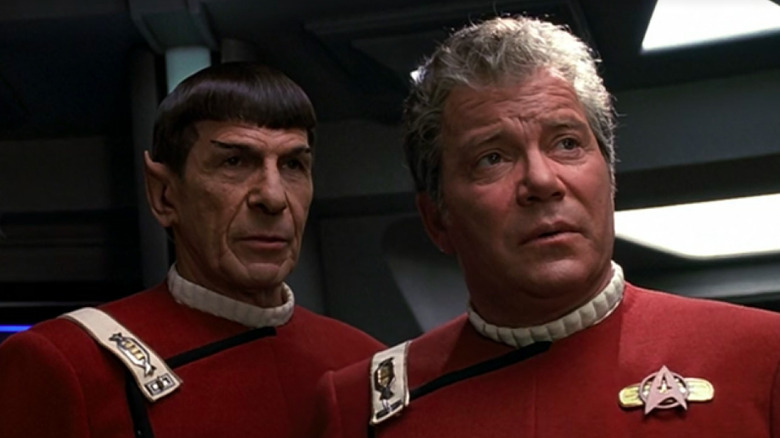12 Best Sci-Fi Franchises Ranked
In challenging times, audiences have often found solace in science fiction. These imaginary worlds peer into futures that posit the outcome of current events, or offer a window into a world far removed from today's problems. Perhaps it's not surprising that these epic worlds have proven to be popular enough to generate large, sprawling franchises that have crossed mediums, from feature films to television series to video game consoles.
These ever-expanding science fiction franchises have been some of the most enduring entertainment ever seen. They've survived generational transitions, adapted to changing times, and stayed relevant over decades thanks to the unique ability for the genre to evolve in space and time.
But it's more than just big box office dollars or sky-high TV ratings that set these titles apart. Science fiction franchises like "Star Wars" and "The Matrix" have imprinted themselves on the public consciousness with catchy sayings and indelible imagery that has become woven into the fabric of our culture.
Whether through the strength of their stories, enduring legacies, or sheer longevity, we've found the cream of the crop from the 1950s to today. So, grab your hyper-spanners and set deflector shields to maximum, because we're ranking the best sci-fi franchises of all time.
12. Battlestar Galactica
Launched on TV in 1978, "Battlestar Galactica" was the brainchild of producer Glen A. Larson, who later became known for classics like "Magnum P.I." and "Knight Rider." The series boasted high quality effects that looked as good as a big screen feature, thanks to being crafted by former ILM SFX supervisor John Dykstra and designed by Ralph McQuarrie, both of whom were pivotal to the special and visual effects of "Star Wars."
In short, "Battlestar Galactica" tells the story of an outer space civilization seeking their long lost, possibly mythical home world called "Earth." The series only lasted a single season thanks to its sky-high budget and sagging ratings (via TV Obscurities). But its popularity soared with fans, which lead to the short-lived follow-up "Battlestar Galactica: 1980."
Over the decades, it spawned a cross-media franchise that included books, comics, and beyond. Its cult status made it the subject of sequel and reboot rumors for years until in 2003, former "Star Trek" writer and producer Ronald D. Moore resurrected it with a darker tone and more adult themes that spoke to the post-9/11 landscape in which it was made. It was an immediate hit and its first season premiere even won a coveted Hugo Award.
The "Battlestar Galactica" reboot ran for five seasons and included a pair of direct-to-DVD films mixed in. It too was followed by a short-lived follow up, the 2010 prequel "Caprica." The influence of the 2000s iteration of this franchise is far-reaching but more subtle, as it helped usher in a wave of gritty sci-fi epics that continue today, while talk of another revival has continued unabated.
11. Predator
The original "Predator" film isn't just one of the best sci-fi movies of the '80s; it's also one of the best action movies too. A vehicle for body builder-turned-actor Arnold Schwarzenegger, it centers on a team of military commandos, who encounter a mysterious alien beast in the jungle that picks them off one by one. The titular hunter — with its iconic mandibles and beady eyes — is the perfect predator that uses heat vision and deadly energy weapons to stalk and kill its prey.
Unlike the majority of sci-fi aliens, however, the beast isn't an invader looking to take over the planet or a mindless animal simply out to kill. Instead, this is a trophy hunter, which makes it distinctive among sci-fi alien races usually seen on-screen.
Between the alien's innovative visual design and unique nature, the first "Predator" movie influenced a number of sci-fi monsters that have come since. Following the film's box office success, "Predator" quickly spawned a franchise, and in 1990, "Predator 2" moved the action to a near-future Los Angeles.
But it was in comic books where Predator really took off the next decade, with a series of crossover titles with everyone from "Aliens" and "Batman" to "Judge Dredd" and even "Tarzan." Though subsequent films like "The Predator" in 2018 and "Predators" in 2010 have been hit or miss, the 2022 direct-to-streaming film "Prey" returned the franchise to its bloody roots. It proclaimed loudly that it was back and better than ever by shifting the focus to a young indigenous woman trying to outsmart this perfect hunter.
10. The Matrix
"The Matrix" began life as a 1999 film from the Wachowskis, and it had a cataclysmic effect on the genre that still reverberates through pop culture. Introducing the wider audience to the concept of simulated realities, the cyberpunk thriller revolves around the disillusioned hacker Neo (Keanu Reeves), who learns that the entire world is a virtual prison created by a race of artificially intelligent machines.
An instant smash hit that blew away critics and audiences with its revolutionary action, trippy visuals, and mind-bending story, "The Matrix" was a watershed film whose reach went far beyond the world of science fiction.
Followed quickly by two sequels and the long-awaited fourth film "The Matrix Resurrections" in 2021, it has become a wider franchise thanks to animated extensions, video games, toys, and more.
For a time, it was the biggest sci-fi franchise around, which enthralled audiences. Critics were less kind to the sequels but more recently, the franchise has been revisited with a new lens. Co-creator Lilly Wachowski confirmed to Netflix that "The Matrix" story is in part a trans allegory, which a number of viewers had already picked up on (via NPR).
In fact, it's this effect on the broader mainstream cultural sphere that helps push it on our list, as many of the film's core concepts have entered the zeitgeist. Capturing the frustration and ennui of a generation, "The Matrix" became the first new sci-fi franchise of the 21st century, and despite divisive reaction to the latest installment, its status as one of the greatest of all time is secure and undeniable.
9. Mad Max
The franchise that popularized the post-apocalyptic sci-fi adventure, "Mad Max" may not have the cultural resonance to match the likes of "Star Wars" or "Star Trek," but it makes our best-of list based on sheer quality alone. Because while just about every sci-fi franchise has its lackluster installments, the four "Mad Max" films comprise what might be the best science fiction quad-rilogy ever made.
Debuting in 1979, the original "Mad Max" has a dusty, neo-Western flavor. It takes place in a dark future world where civilization has collapsed and Max Rockatansky (Mel Gibson) is one of the last remnants of law and order. In this bleak future, gasoline and water are precious resources, and modified cars and trucks race across the landscape, while warlords vie for control over the sparse population of survivors.
Created by writer/director George Miller, the Australian original was a non-stop roller-coaster ride that sparked a wave of copycats, with its low budget sci-fi aesthetic making anyone believe they too could make a masterpiece. Its sequel "The Road Warrior" was even better.
While the third entry "Beyond Thunderdome" couldn't quite match the previous two entries, it was still beloved by critics and contained what made the franchise great: intense action and memorable stunts.
After decades of starts and stops, "Mad Max: Fury Road" roared back into cinemas in 2015. It wasn't just the best entry in the series with breathtaking cinematography, a pulse-pounding score, and a captivating new story; it was arguably one of the most perfect films ever made.
8. Back to the Future
Produced by Steven Spielberg — who already had a pair of sci-fi hits with "Close Encounters of the Third Kind" and "E.T." — and starring TV's biggest sitcom star Michael J. Fox, "Back to the Future" may seem like it was destined to be a success. But believe it or not, the writing team of Bob Gale and Robert Zemeckis had been turned down more than 40 times by every major studio before they finally got their dream project off the ground with Universal (via CNN).
Released in 1985, "Back to the Future" sees misfit teen Marty McFly (Fox) inadvertently sent back in time 30 years thanks to a time-traveling DeLorean invented by his wide-eyed scientist friend Doc Brown (Christopher Lloyd).
The first film's overwhelming success and popularity meant sequels were inevitable, and a pair of follow-ups introduced non-sci-fi fans to the idea of parallel timelines, temporal paradoxes, and causality loops.
The franchise also made the DeLorean — arguably the biggest failure in automobile history – one of the most beloved vehicles in cinema. A pair of sequels rounded out one of the most iconic sci-fi trilogies ever, and a spin-off animated series came not long after.
With a far-reaching influence on film and pop culture, "Back to the Future" is the rare franchise that has never been relaunched. In an interview with The Telegraph, Zemeckis noted that the contract with him and co-creator Gale requires their approval for any follow-ups, which neither of them will ever sign off on so long as they're alive (via USA Today).
7. The Terminator
Arnold Schwarzenegger may be famous as an action star, but he is the face of no less than two of the biggest and best science fiction franchises in history. Three years before he fought a nasty alien trophy hunter in "Predator," Arnie played the evil robot killer in James Cameron's 1984 sci-fi classic "The Terminator."
The former bodybuilder plays the Terminator, a silent but deadly cyborg from a future where robots are at war with mankind. Sent back into the past to assassinate Sarah Connor (Linda Hamilton), the unwitting mother of future humanity's greatest leader, the Terminator instantly became one of sci-fi's best villains and one of cinema's most memorable characters with his catchphrase, "I'll be back."
In 1991, Cameron, Schwarzenegger, and Hamilton reunited for "Terminator 2: Judgment Day," which proved even better than the first, and is often ranked as one of the best sci-fi movies ever made.
The film series continued in 1997 with "Terminator 3" and into the 2010s with more sequels, none of which included series creator James Cameron in the director's chair. Subsequent films weren't able to match the quality of Cameron's first two installments.
The franchise fared better on TV thanks to the 2008 spin-off "The Sarah Connor Chronicles," which starred Lena Headey as Sarah Connor, and fans can see an upcoming anime spin-off on Netflix (via Variety).
But no matter how disappointing the later films in the series were, "The Terminator" earns its place among the best science fiction franchises on the strength of its first two efforts. Cameron's films influenced sci-fi overall, as they popularized dark A.I.-controlled futures, robotic alien conquerors, and empowered female action stars. Many of the best sci-fi heroines have followed in Sarah Connors' footsteps, but few have surpassed her.
6. Planet of the Apes
"The Planet of the Apes" is the singular franchise on this list to have been sparked by an adaptation of a book, as its source material was Pierre Boulle's French novel "La Planète des singes." "The Twilight Zone" creator Rod Serling co-wrote this screen adaptation in 1968, which played somewhat fast and loose with the book's details, and concluded with a now-famous twist ending that left audience's jaws on the floor.
Starring Charlton Heston, "The Planet of the Apes" tells the story of a trio of astronauts, who crash land on a strange and alien world where monkeys rule civilization and humans are mute slaves.
An immediate box office sensation, "Planet of the Apes" was quickly followed by nearly annual sequels. Though they were of significantly lesser quality, they weren't without their own charms, and helped turn a small sci-fi adventure into one of Hollywood's biggest franchises in its day. A small screen spin-off landed in 1974, and an animated series a year later.
But even though none of the follow-ups matched the original, "Planet of the Apes" continued to live in the hearts and minds of fans, surviving even an abysmal Tim Burton remake in 2001.
A decade later, a reimagined series of films brought the franchise back to prominence. While the original was full of quotable lines, iconic moments, and themes of racism, gender roles, and humanity's penchant for self-destruction that still resonate, the new series has embraced its sci-fi roots with a more serious examination of political and social themes that helped return it to blockbuster status.
5. Alien
In 1979, young director Ridley Scott followed up his 1977 debut film "The Duellists" with the best science fiction film of the decade. A combination of gut-bursting horror and gritty sci-fi realism, "Alien" took the grungy future world of "Star Wars" and populated it with a cast of ordinary blue collar workers, eschewing the pulpy over-the-top heroes and villains.
With its unique grounded tone, it follows the crew of a long haul space freighter, who are terrorized by a Xenomorph, a deadly alien creature that has become one of the greatest movie monsters in cinema history.
"Alien" was astounding and groundbreaking with its masterful tension, resourceful heroine, and H.R. Geiger-designed alien, whose visual imprint on pop culture hasn't seemed to fade in the decades since it first burst out of a man's chest.
However, the franchise really came into its own with James Cameron's 1986 sequel "Aliens," which turned the story into a fast-paced action flick. "Alien³" and "Alien Resurrection" followed in the 1990s with lackluster results.
But the series continued to instill sheer terror in audiences at the mere sight of the Xenomorph, who headlined everything from hit comic books to video games. In fact, one wildly popular, long-running comic book title paired "Alien" with another classic franchise and was adapted into a crossover feature film in 2004: "Alien vs Predator."
Though the results of later films in the series have been mixed, the first two films were instant classics in their day and have proven the test of time, with its influence living on in television, film, and video games. Known for its nail-biting suspense, spine-tingling horror, and stunning visual design, the "Alien" franchise is truly unforgettable.
4. The Twilight Zone
When it comes to television classics, few can compare with the legacy of the 1959 series "The Twilight Zone." Not strictly a science fiction show (unlike its later spiritual cousin "The Outer Limits"), "The Twilight Zone" is an anthology series that mingles genres and includes elements of sci-fi, horror, mystery, suspense, romance, and comedy. But nearly every episode includes some fanciful factor, such as aliens, supernatural powers, time travel, and beyond.
Running for five stellar and acclaimed seasons, "The Twilight Zone" produced some of the best television in its — and any — era and inspired a wealth of copycats over the years that can be seen as recently as "Black Mirror."
Creator Rod Serling opened and closed each episode, appearing as the series' on-screen host to introduce a mystery, ponder a puzzle, or posit the extraordinary story on offer. Known for its climactic twists and stunning reversals that still shatter the senses, "The Twilight Zone" remains as watchable today as it was when it first aired.
Beyond the original five season run, "The Twilight Zone" was adapted as a big budget feature film from Steven Spielberg in 1983. It was revived as a TV series shortly thereafter in what became a sorely underrated follow-up that produced several of its own classic episodes.
At least three later revivals — including a 2019 one by Jordan Peele — have failed to win over audiences and critics in the way Serling's original series did. But the fact that Hollywood keeps trying is a testament to the franchise's indelible impact and unflappable staying power.
3. Doctor Who
The British series "Doctor Who" sends its hero — known only as ”The Doctor" – through time and space in a vessel disguised as a blue police box called the TARDIS. While it first was launched by the BBC in 1963, the series has adapted to the 21st century thanks to the magic of science fiction where the Doctor can "regenerate" into a new body, which allows a new actor to take over the role every few years.
This swapping of stars has become etched into the series' DNA and has always made "Doctor Who" unique, as it affords opportunities for the series to reinvent itself to keep up with changing times.
Briefly canceled in 1989, the wilderness years of the '90s saw only an ill-fated TV movie, before a 2005 revival brought the franchise back. A Ninth Doctor — big screen star Christopher Eccleston — kicked off a successful run of new stories that led to several spin-off series that turned the long-running "Doctor Who" into a global franchise. "Doctor Who" has continued uninterrupted since, with actor Ncuti Gatwa taking over as the 15th Doctor in 2023.
For years, the popularity of "Doctor Who" had been largely limited to its native U.K. where it was a cultural institution, but began to spread more widely in the 1980s.
The 2005 revival brought it broader worldwide acclaim, and cemented it as one of the greatest sci-fi franchises ever, which entranced audiences with fairy tale-like adventures. For more than six decades, it has delighted fans of all ages with stories full of awe-inspiring wonder, hope, and joy, as much as action, suspense, and horror, and it shows no signs of slowing down.
2. Star Wars
A franchise with an impact on pop culture that can hardly be measured, "Star Wars" may have had the biggest effect on Hollywood itself. Created by fledgling filmmaker George Lucas and released in 1977, it changed the landscape of the movie business forever in ways that are still being felt today.
Beyond the film's revolutionary special effects that reshaped the industry, Lucas' focus on merchandising changed the way Tinseltown treats its films as a product. It also gave rise to the franchise as we know it with a focus on product tie-ins that are just as popular as the movie itself (via Vox).
The original "Star Wars" trilogy introduced the world to some of cinema's most iconic characters ever, resonated around the globe, and forced its way into the zeitgeist. For decades, it was the larger franchise of expanded media that kept it alive, with video games, comic books, and toys turning a simple movie series into a veritable empire.
The long-awaited prequel trilogy beginning in 1999 might not have been as well-received, but it re-energized the brand and lead to the eventual acquisition by Disney (via CNBC). More films, animated adventures, and several live action spin-off series have ensured the franchise's continued dominance.
But beyond its wealth of content, "Star Wars" just might be one of the most beloved sci-fi franchises ever in terms of sheer number of fans. Its story is timeless, its adventures are iconic, and its popularity stretches around the globe, which arguably has made it the most influential of any film series ever made.
1. Star Trek
"Star Trek" takes our top spot as the greatest science fiction franchise and there's good reason to crown it king. Airing for the first time in September 1966, "Star Trek" changed sci-fi on TV forever, as it was far from the silly, childish space adventures that audiences were familiar with at the time. Instead, what prime time viewers saw was a cast of fully realized characters led by Captain Kirk aboard the starship Enterprise.
Episodes explored real issues with political and social messages and brought unparalleled diversity to the screen. Though it only lasted three seasons, success in reruns in the 1970s prompted a children's cartoon follow-up and eventually, a big budget feature film that received five sequels.
With the 1987 launch of "Star Trek: The Next Generation," the franchise began an unprecedented expansion. In the years since, it has grown to include more than 12 television series and 13 movies with more on the way. While the quality of each series and film has varied, many have achieved critical acclaim and been praised for their focus on high quality storytelling and message of hope and optimism.
But "Star Trek" is more than just a media juggernaut; it is a genuine cultural touchstone with a legacy that cannot be overstated. "Star Trek" has become part of our lexicon, as even those who have never seen the series may be familiar with lines like "beam me up, Scotty" and "live long and prosper." "Star Trek" is also largely responsible for the very rise of fandom and the first fan conventions (via GQ).
It's helped motivate politicians like Alexandria Ocasio-Cortez and Stacey Abrams (via Inverse) and revolutionaries like Martin Luther King Jr. (via Time) for its message of peace, tolerance, and diversity. "Star Trek" has gone far beyond an ordinary entertainment franchise: It's inspiring innovation and invention, and it continues to keep generations of would-be explorers reaching for the stars.
